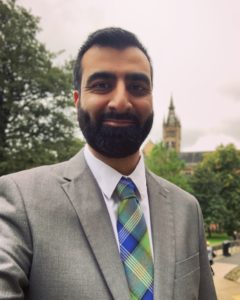Publications
2024
2023

Pink, Johanna. 'The Inimitable Qur'an and the Languages of Empire: Muslim Qur'an Translations in the Languages of Western Europe in the Early Twentieth Century.' In Gulnaz Sibgatullina and Gerard Wiegers (eds.), European Muslims and the Qur'an. Practices of Translation, Interpretation, and Commodification, Berlin 2024 [2023], 219–256.
Yakubovych, Mykhaylo. 'Commenting, Publishing, and Translating: Evolution of Qur'anic Traditions in Crimea from the Eighteenth to the Twentieth Century.' In Gulnaz Sibgatullina and Gerard Wiegers (eds.), European Muslims and the Qur'an. Practices of Translation, Interpretation, and Commodification, Berlin 2024 [2023], 143–164.

Pink, Johanna (ed.), Qur'an translation in Indonesia: Scriptural Politics in a Multilingual State, Abingdon 2024 [2023].
2022

Pink, Johanna. 'Eight Shades of Ibn Kathīr: The Afterlives of a Premodern Qurʾānic Commentary in Contemporary Indonesian Translations.' In Majid Daneshgar and Ervan Nurtawab (eds.), Malay-Indonesian Islamic Studies. A Festschrift in Honor of Peter G. Riddell, Leiden 2022, 109–133.

Pink, Johanna. 'Susan Gunasti, The Qur’an between the Ottoman Empire and the Turkish Republic: An Exegetical Tradition', Journal of Qur'anic Studies 24, no. 3 (2022): 103-108
2021

Pink, Johanna. ’Translation.’ In George Archer, Maria M. Dakake and Daniel A. Madigan (eds.), The Routledge Companion to the Qur’an, London and New York 2021, 364–376.

Pink, Johanna. ‘Maria statt Mariam?’, Frankfurter Allgemeine Zeitung 38 (15 February 2021): 6.
2020

Pink, Johanna. 'The kyai’s Voice and the Arabic Qur’an: Translation, Orality, and Print in Modern Java‘, Wacana 21, no. 3 (2020): 329–359.
This paper discusses practices of translating the Qur’an into Javanese in the Indonesian post-independence era. Focusing on works that emerged in pedagogical contexts, it demonstrates that the range of translation practices goes far beyond contemporary notions of scriptural translation. I argue that this is due to the oral origin of these practices and to the functions they assume in teaching contexts. These result in a higher visibility of the translator who appears as a religious authority in his1 own right. His voice might therefore be considered a valuable contribution to the translation, rather than a distortion of the source text’s true meaning. These dynamics are tied to the status of Javanese in a country in which the predominant language of print is Indonesian. Studying translation activities in languages without official status in the nation-state period contributes to widening our perspective on contemporary translation practices.
Yakubovych, Mykhaylo. ‘Ottoman Qur’anic Studies: Case of Tafsīr Glosses’, Rocznik Orientalistyczny 74, no. 1 (2020): 41-51.
Among the big corpus of the commentaries over the Qur’an, one of the special developments was the genre of the gloss (ḥāšiya). The study addresses mainly Ottoman glosses written on Qur’anic commentaries, contextualizing the genre within the internal dimensions of content transformations. It is argued that, since the glosses were used as textbooks in the Ottoman medrese, they could be considered as “mainstream” Ottoman readings of the Qur’an. This reading was not merely one of the practices of approaching the Qur’an, but a kind of tradition with related authorities and meaningful developments.
Jakubowycz, Michajło. ‘Koran: przekład Musy Çaxarxana Czachorowskiego’ [“The Qur’an: Translated by Musa Dzaharhan Chahorowski], Przegliad Tatarski 48, no. 4 (2020): 15-16.
Review of a recent Qur’an translation into Polish, published in Bialystok, Poland, in 2018.


